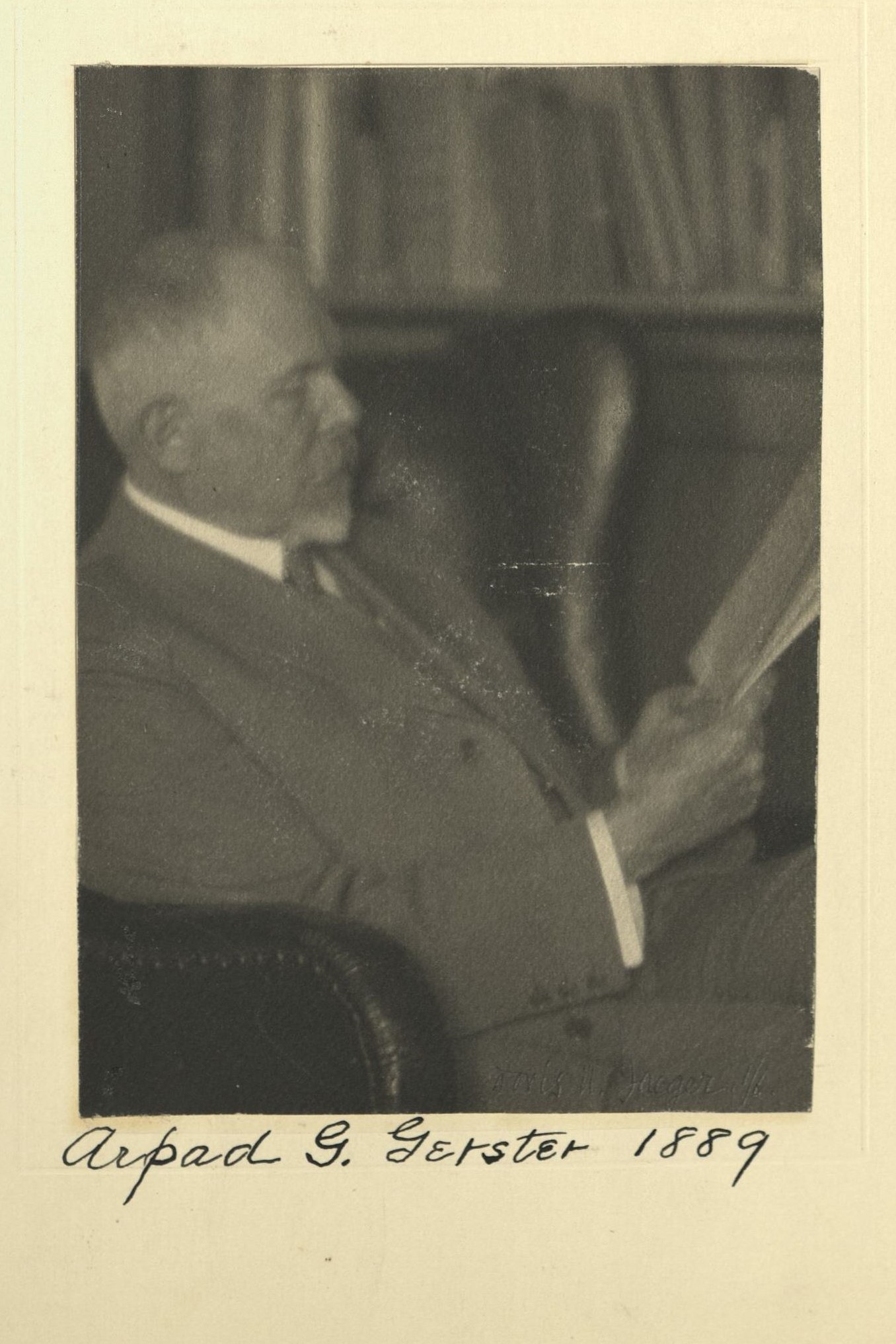Surgeon
Centurion, 1889–1923
Born 22 December 1848 in Košice, Slovakia
Died 11 March 1923 in New York (Manhattan), New York
Buried Gerster Family Cemetery , Long Lake, New York
, Long Lake, New York
Proposed by Henry B. Sands and Abraham Jacobi
Elected 2 February 1889 at age forty
Archivist’s Note: Father of John C. A. Gerster; grandfather of John W. Gerster
Century Memorial
It has been said of Arpad Geyza Charles Gerster that the medical profession and the community at large were less indebted to him for his skill in surgery than for his scholarly pre-eminence—a quality of the kind which would make of medicine not merely a learned profession but a profession of learned men. His well-known “Recollections of a New York Surgeon” brought vividly into sight the care and conscientiousness with which his own great learning was acquired, but even this written testimony was less striking witness to his personal attainments than the clear statement in his lectures and addresses, the sound logic of his arguments, his concise summary of judgment on a question—beginning with the familiar “in short”—which convinced and delighted every one within hearing of his voice.
Dr. Gerster was deeply interested in every advance of science or of art, but his deepest convictions were founded on the teachings of the great masters of the past. Innovation for the sake of innovation excited only his contemptuous comment. It was his saying that books which were worth reading at all were worth re-reading, and his intimate knowledge of classical literature and of six modern languages made it possible for him to penetrate far into ancient and contemporary thought. He was not less acquainted with the great works of fiction, but dismissed with scorn the vagaries of the decadent school nowadays so much in vogue. At the Charraka Club [sic: Charaka], from whose meetings he was rarely absent, his written contributions breathed his profound knowledge of history, painting, sculpture and music. This was a career with its lessons for our generation, whose life achievement is so commonly divided between exclusive concentration on the work of a single profession and the diffusion of interest into other fields of which only an idle smattering of knowledge had been acquired.
Alexander Dana Noyes
1924 Century Association Yearbook

